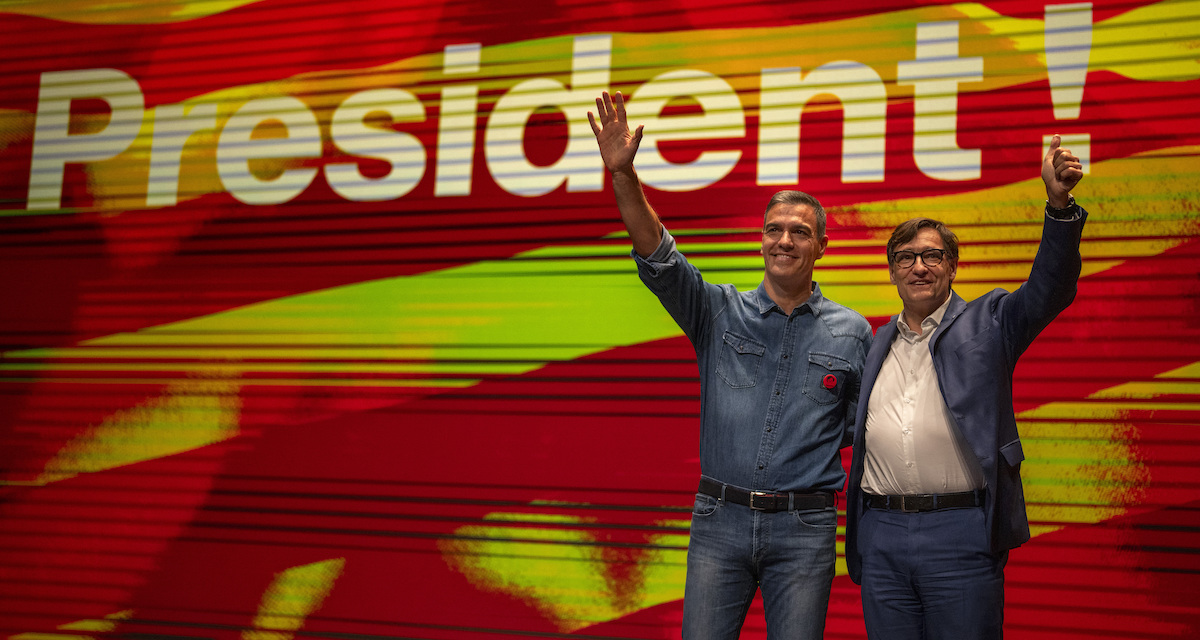Loading player
The result of Sunday’s elections to choose the new parliament of Catalonia, an autonomous community in Spain, has led to some consequences that could have effects not only locally, but for the entire country. The political force with the most votes was the Catalan Socialist Party (PSC, an offshoot of the national Socialist Party), but the most important fact is that for the first time since 2003 the parties calling for the independence of Catalonia did not reach a majority, not even adding all their votes together.
This has many analysts and politicians talking about the fineor at least of crisisof the processa word that means process and which is the way in which, in Spanish political jargon, the repeated attempts by the Catalan secessionist parties to obtain independence are indicated, which culminated in the illegal referendum of 2017. In reality, the independentist parties are still very strong in Catalonia, and represent a part consistent but not a majority of the Catalan population who wants independence from Spain: independence, in Catalonia, will continue to be talked about for a long time, but it is likely that the ways and topics will change.
According to various analyses, one of the winners of these elections – in addition to Salvador Illa, the Socialist candidate – was Pedro Sánchez, the Spanish Prime Minister, who was the main supporter of a government policy towards Catalonia based on coexistence and not on clash.
In the last years of his government, Sánchez first granted pardon to the pro-independence leaders who had been jailed following the 2017 referendum and in recent months he passed a law to grant amnesty to all people who had problems with the law Spanish due to their activism in the independence movement. In the meantime he has adopted various economic and political measures to ensure better coexistence between Catalonia and Spain, and made some concessions to the demands of Catalan nationalists.
In this way, Sánchez defused the most combative demands of independence and allowed a dialogue to be established. He spoke about it himself after the publication of the election result, writing that “a new stage begins in Catalonia” to “strengthen coexistence”.
According to his critics, Sánchez would actually have been forced into this attitude of openness towards Catalan nationalist demands because his government depends on the external support of the two main pro-independence parties: Junts, centre-right, and ERC, centre-left, both of which have deputies in the national parliament, as well as the Catalan one.
In any case, much of what will happen in Catalan politics in the coming months will depend on which forces manage to form a government: if Salvador Illa and the Socialists succeed, then it is likely that the process will enter a more moderate phase, and that Catalan politics will focus on coexistence rather than independence.
For Illa, however, becoming president of Catalonia will be complicated.
To obtain a majority in the Catalan regional parliament, 68 seats are needed, and the Socialists have 42. They could ally themselves with the ERC (centre-left pro-independence party) and with the Comuns, a non-independence left-wing formation, and get just 68 seats. But ERC has just suffered a serious defeat (it went from 33 seats to 20) and its leader, the outgoing governor Pere Aragonès, said that the party will spend this legislature in opposition.
Pere Aragonès ammette la sconfitta (David Zorrakino/Contact via ZUMA Press)
The Socialists could also form a minority government with the Comuns, and seek the support of the other parties from measure to measure. These are all rather complicated options, which do not exclude the possibility of a repeat vote in the coming months.
In this context, another notable element was the strengthening of the right-wing forces: the People’s Party, which had taken just three seats in the previous elections, obtained 15; Vox, a far-right party, retained 11; and for the first time Aliança Catalana, a pro-independence but far-right party, entered parliament and obtained 2 seats. The seats of the right are not decisive for the formation of any government, but they show an important trend, especially regarding the growth of the far right.
